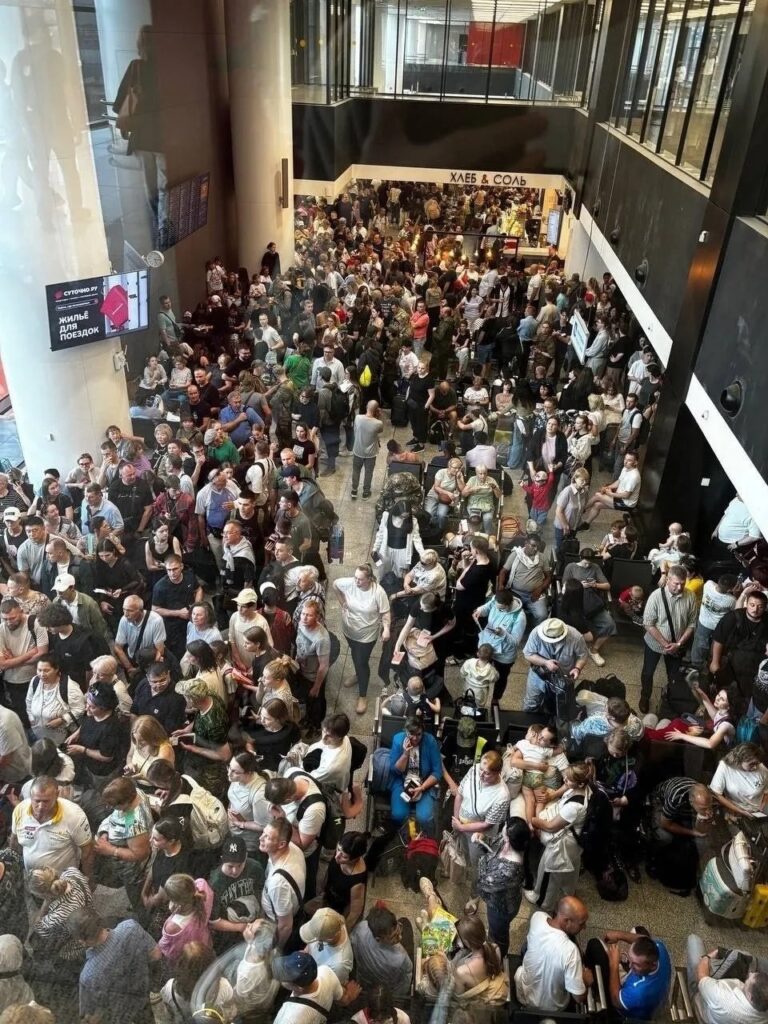Russian airports crippled by mysterious airspace threat—171 flights canceled in Moscow alone

Russian airports crippled by airspace threat canceled 171 flights in Moscow alone. Operations in five other cities were suspended entirely. The Russian Federal Air Transport Agency (Rosaviatsia) said that “external interference” disrupted airport functions. Authorities cited safety as the reason for halting air traffic. It is unclear, if the airports have been under a cyberattack or the agency just uses the vague language to describe Ukrainian drones in the airspace.
Sheremetyevo, Moscow’s main airport and Russia’s largest, suffered the largest collapse. As of 18:00 Moscow time on 6 July, 171 flights were canceled. Another 56 flights faced delays exceeding two hours, according to Rosaviatsia.
Around 15,000 passengers were preparing for departure at Sheremetyevo. They waited in crowded terminals as staff worked to stabilize operations.
St. Petersburg and Nizhny Novgorod airports crippled too
Pulkovo airport in St. Petersburg also faced major disruptions. According to Rosaviatsia, 90 flights were canceled and 37 delayed by over two hours.
Officials restricted access to the clean zone at Pulkovo. They aimed to reduce passenger congestion during the shutdown.
The Nizhny Novgorod Chkalov airport saw the most prolonged disruption. Authorities canceled 26 flights and delayed 13 others. Staff at Chkalov increased shift capacity to speed up boarding and baggage handling.
Smaller Russian cities halt airport activity completely
Airports in Ivanovo (Yuzhny), Kaluga (Grabtsevo), Pskov, and Tambov (Donskoye) stopped all flight services. Rosaviatsia said these closures were due to “periodic interference” from outside. All five airports had no incoming or outgoing flights.
Authorities claim the situation is stable and controllable, use trains as fallback
Rosaviatsia claimed the situation was under control. The agency stated that Russia’s aviation system had “enough resources” to manage disruptions.
Russia’s Deputy Transport Minister Vladimir Poteshkin visited Sheremetyevo twice that day. He checked airline operations and crowd control measures.
Rail routes between major cities began to absorb stranded travelers. Authorities claimed over 8,000 train seats were available between St. Petersburg and Moscow from 6 to 8 July.